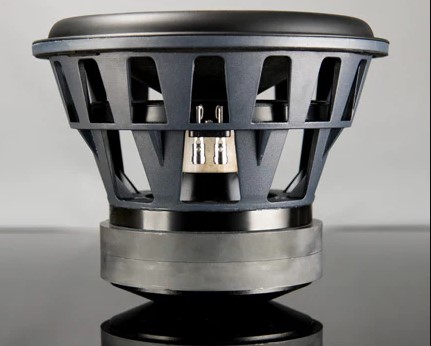Speakers: Are Large Drivers Slow?
We often complain around here about the “wisdom” we see spread in online forums and subreddits. These are things that have been said so often that people will parrot them without a second thought. Things like a subwoofer CAN’T be too big (not true btw). You need big speakers to get big sound (also not true). That if you want better sound, you need to upgrade your speakers (again, not true). But one statement seems to be true simply because it makes sense – Large drivers in speakers or a subwoofer must be slow in comparison to a small one. But is it true? Let’s discuss!
The Genesis of Common Knowledge
When someone looks at something that is moving like speakers’ drivers, it is easy to think that the larger it is, the harder it is to move and therefore it will be slow. It makes sense intuitively. You’ve trying to move something large. It was harder than moving something small. Why would drivers be any different?
There is also probably some basis in history. Over the years, speaker driver design has gotten better and better. The magnets that control the drivers have gotten more powerful. But, when subwoofers were first released, that wasn’t the case. The magnets had a hard time stopping the drivers. This led to the idea that larger drivers in subwoofers and speakers were slow. Because, at first, they were.
The Concern
The concern here is that large drivers in speakers are slow to start and stop. This means that they will be less accurate. You’ll see people claim such things as a speaker having “hold over” (where the sound continues past where it should), “muddy” sound (where individual notes cannot be distinguished), and more. All of this is usually attributed to how slow the “larger” drivers in the speakers act. But is it true? Should you worry about larger drivers in speakers being slow?
It’s Not About Speed
The movement of a driver creates the sound wave we hear. But the real issue is that people don’t really understand how drivers work. For a small driver to output a sound at a specific frequency, it need to move at a specific number of oscillations but also with a specific amount of excursion. Excursion is how far out or in the driver moves.
Speakers with larger drivers (or a single large driver like a subwoofer) will still need to move at the same number of oscillations to create the correct frequency. But, because of the greater surface area of the driver, they won’t have to move as far out and in to reach the same volume. It’s a tradeoff.

A Speaker is an Ecosystem
We’ve talked before about how you can’t really judge a speaker by looking at it. But people want shortcuts. They want to be able to say something definitive about a speaker without really knowing much about it. The only way to know if set of speakers (or a subwoofer) has “slow” drivers would be to open them up and look at the back of the drivers. If the driver is large but the magnet is small (you could actually weigh a driver and make more accurate assumptions than looking at it), then maybe you could say something about whether it was “slow” or not.
But you’d still need more information. What sort of box (sealed or port) is it in? In the case of subwoofers, you’d want to know the power output of the amplifier. There is so much more to the performance of a speaker than the size of its drivers.
Take Away
Most of us agree that it is okay not to know everything about everything. You don’t walk by a house and think that you can make any claims about the construction based on how it looks from the street. We don’t examine the wheels of a car and think we know something about how the engine performs. But people somehow think that speakers are “simple” and therefore they should be able to know things about them based on looks. Heck, we all know how “simple” home improvement tasks can quickly get out of hand!
So, are larger drivers in speakers slow? Not necessarily and, with all the speakers and subwoofers we recommend, we can say definitely not. Our advice is to take any statement that lumps all AV products together with healthy skepticism. Most of the time, those generalities just aren’t true.


